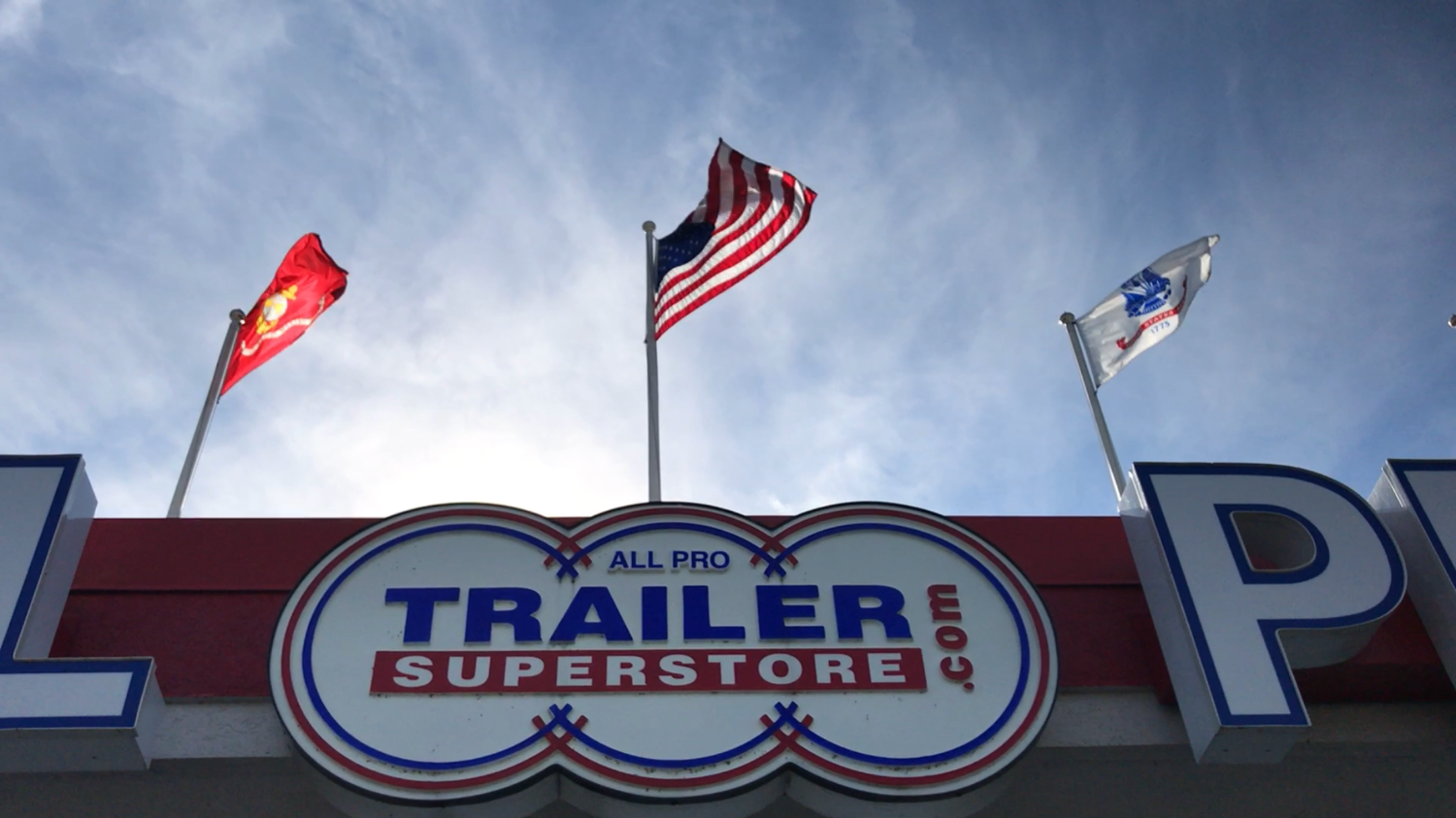Prepping Your Vehicle For Towing A Trailer
Feb 17, 2016Last Updated on September 30, 2024 by Alex Bobb
Last Updated on September 30, 2024 by allprotrailersuperstore

Get The Right Vehicle For The Job
Whether you want to use your current vehicle to tow a trailer or you want to buy a new one for the job, it’s important to first figure out what you plan on doing before you buy trailers. Towing adds a significant amount of stress to a vehicle’s chassis, steering, transmission, suspension, engine and brakes, so you want to make sure your vehicle is equipped to handle the additional load. As a general rule of thumb, you will want your vehicle’s towing capacity to exceed the weight of whatever you plan on towing. Also, if you plan on towing in an area that’s generally flat and dry, 2-wheel-drive may be sufficient but if you are towing in conditions that are mountainous or subjected to snow/rain, you may need to consider 4-wheel-drive.
Be Careful Of ‘Heavy-Duty’
Just because a vehicle has a ‘heavy-duty’ badge or emblem does not mean it is capable of towing all trailers. Many people will assume a big, heavy-duty truck can pull any trailer but the truth is there is much more to worry about than the towing properties alone. Some vehicles are rated to tow certain trailers over others because they were designed differently – their suspension might be more suited for heavier applications or their chassis is more rigid/stronger for the application.
Get The Right Hitch
All hitches are not created equal and if you have the wrong class hitch on your vehicle that does not match the specs for the trailer, you will be in a lot of trouble. With that said, there are two specific numbers (gross trailer weight & maximum tongue weight) and five hitch classes you need to be aware of because it’s important to select the appropriate hitch.
- Class 1: 2,000 pounds GTW | 200 pounds tongue weight
- Class 2: 3,500 pounds GTW | 350 pounds tongue weight
- Class 3: 5,000 pounds GTW | 500 pounds tongue weight
- Class 4: 7,500 pounds GTW | 750 pounds tongue weight
- Class 5: 10,000 pounds GTW | 10,00 pounds tongue weight
Consider using a hitch that is heavy-duty enough to match your vehicle’s GTW and tongue-weight specification and do not forget to factor in the weight of the trailer’s load.
Hook Up Tips
Once you’ve gotten your vehicle and trailer basics down, it’s time to hook up. When the trailer is placed on the hitch ball, be sure to connect the safety chains from the trailer to the hitch in a cross formation or as an X. The chain serves as a last resort if the trailer uncouples from the hitch ball because it’ll keep the tongue of the trailer from hitting the pavement as it’ll rest on the chains.
After the chains are properly hookup, be sure to inflate the trailer tires up the manufacturer’s maximum recommended cold pressure because properly inflated tires will run cooler and that last thing you want is for the tires to heat up. Following the inflation, give the trailer a light check to ensure all the turn signals and brake lights are working – simply switch on the parking lamps and turn on the four-ways/hazard lights in the vehicle and walk around to the back of the trailer to do a visual check.
With the above tips, you should be able to successfully tow a trailer with ease and safety!


